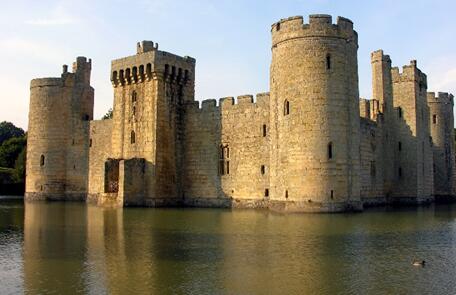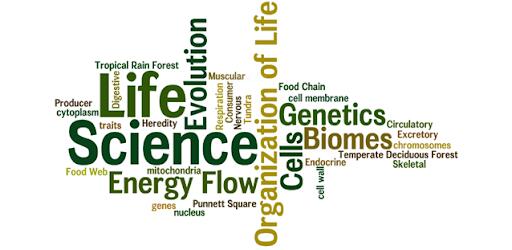Grade 7 Competencies
Reading Literature - Students will comprehend and draw conclusions about the author’s intent when reading a variety of increasingly complex print and non-print literary texts, citing several pieces of textual evidence to support their analyses, with a focus on development of theme; interaction of plot elements; connotation; text structure (poetry); character development; developing and contrasting points of view; and comparing/contrasting historical portrayals.
Reading Informational- Students will comprehend and draw conclusions about a variety of increasingly complex print and non-print informational texts, citing several pieces of textual evidence to support their analyses, with a focus on determining the development of two or more central ideas; analyzing the interactions and influence of ideas, individuals, and events; figurative and connotative word meanings; author's POV and purpose; comparing/contrasting various mediums; tracing and evaluating arguments; and analyzing presentation of ideas.
Speaking, Listening, and Language Conventions - Students will initiate and participate effectively in speaking-listening for a variety of informal and formal purposes and audiences with a focus on referring to evidence, goal setting, posing questions and responding to others. Students will analyze main ideas presented in diverse media, evaluating the soundness of claims, and effectively communicating them. They will incorporate multimedia components in presentations, adapting speech to various contexts. When writing or speaking, students will demonstrate command of the conventions of grammar and usage.
Narrative Writing - Students will write narratives to develop real or imagined experiences or events using effective technique, relevant descriptive details, and well-structured event sequences. Engage and orient the reader by establishing context. Use narrative techniques such as dialogue, pacing, and descriptions. With some guidance and support, students will develop and strengthen writing by planning, revising, editing, and rewriting to produce clear, coherent narratives appropriate to task.
Informative/Explanatory Writing - Students will write informative/explanatory texts to examine a topic and convey ideas, concepts, and information through the selection, organization, and analysis of relevant content. Introduce and develop a topic with relevant facts, definitions, and concrete details. With some guidance and support, students will develop and strengthen writing by planning, revising, editing, and rewriting to produce clear, coherent informative writing appropriate to task.
Argument Writing - Students will write arguments to support claims with clear reasons and relevant evidence, introducing and supporting claims, using accurate and crebible sources. With some guidance and support, students will develop and strengthen writing by planning, revising, editing, and rewriting to produce clear, coherent arguments appropriate to task.
Inquiry, Investigation, and Research - Students will conduct short research projects to answer a question, drawing on several sources, gathering relevant information from print and digital resources. Assess the credibility and accuracy of sources, and quoting and paraphrasing. Draw evidence from a variety of texts to support analysis.
Critical Inquiry & Analysis - Students will be able to use a variety of historical sources, documents, maps, and visuals and determine their credibility.
Research & Communication - Students will develop clear claims and use evidence from multiple sources to construct an argument. Geography - Students will be able to analyze and explain the various ways physical geography impacted the development of ancient civilizations.
Geography - Students will be able to analyze and explain the various ways human and physical geography impacted the development of culture in the United States.
People & Events - Students will be able to analyze the influence people had on the growth and development of ancient civilizations.

Ratios & Proportions - Students will extend their understanding of ratios and proportionality to solve single-and multi-step problems embedded in real-world applications.
Number Systems - Students will expand their understanding of number systems thinking flexibly and attending to precision and reasonableness when solving problems using rational and irrational numbers.
Expressions & Equations - Students will reason abstractly and manipulate symbolic expressions to represent relationships and interpret expressions and equations in terms of a given context for determining an unknown value.
Geometry - Students will solve problems involving reasoning using properties of 2- and 3- dimensional shapes to analyze, represent, and model geometric relationships in pure/theoretical and authentic applied contexts.
Data, Statistics, and Probability - Students will design investigations and conduct probability experiments involving populations.
Chemical Reactions, Matter, and Energy - Students can demonstrate an understanding of how substances interact and change during chemical reactions, including the transfer of energy in endothermic and exothermic processes.
Metabolic Reactions and Photosynthesis - Students will be able to explain and model the flow of matter and energy in biological and ecological systems, including the role of cellular processes like photosynthesis and cellular respiration in generating and utilizing energy from food molecules.
Ecosystems and Biodiversity - Students will understand how the interactions between biotic (living) and abiotic (non-living) factors are fundamental to the structure, function, and overall health of an ecosystem.
Resources and Human Impact - Students can explain how human activities, such as resource extraction, pollution, and unsustainable land use practices, impact the distribution and availability of natural resources like water and minerals, and evaluate the environmental and societal consequences of resource depletion.

